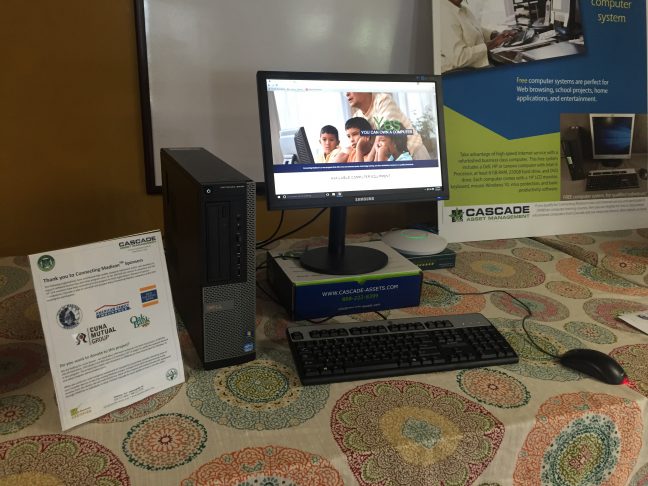In an effort to bridge the digital divide in Madison, Mayor Paul Soglin on Tuesday joined residents of the Allied Drive neighborhood and other city officials to kick off “Connecting Madison.”
The initiative, which is funded by the city and local donors, aims to provide high-speed internet and computers at a reduced cost to students and families in low-income neighborhoods, as well as offer them digital literacy training.
To qualify for the program, participants must provide a proof of address in the participating neighborhoods when signing up for internet services or attending the workshops. ResTech Services, Cascade Asset Management and DaneNet were among some of the sponsors present at the launch.
“The digital divide presents incredible challenges for our community,” Soglin said. “We are just getting started. This is the beginning of an incredible challenge where this city will have to do so much better in terms of providing access.”
Starting at $9.99 per month, subscribers will be able to access the basic plan of 10 Mbps of internet service each month, ResTech Services President Bryan Schenker said.
Additionally, Schenker said residents also have the option to install television and telephone services as well.
“We want to take advantage of our skills to help bridge the digital divide here in Madison,” Schenker said.
In the same vein, Neil Peters-Michaus, CEO and founder of Cascade Asset Management, said his organization hopes to provide a variety of different resources, such as donated computers and monitors.

Alice Vagun/The Badger Herald
Along with providing internet access and equipment for students and families, DaneNet will be providing educational services for residents looking to improve their digital literacy. The workshops, which will be taught in English, Spanish and Hmong, are expected to begin in October.
The program will pilot in four neighborhoods in Madison’s west side: Allied Drive, Darbo Washington, Brentwood and Kennedy Heights Apartments. Phil Kronberger, city information technology director, anticipates the pilot phase to run for two to three years.
“We want to evaluate what challenges we encountered, what lessons learned, where do we go from here and how do we expand,” Kronberger said.
Ald. Maurice Cheeks, District 10, whose district includes Allied Drive, said access to internet needs to be “a basic right” and it should be considered as a utility. As a tech executive, he said Allied Drive residents are not only building up internet access, but they are also strengthening the bond within the community.
Allied Drive resident Sina Davis said she is thankful that the city of Madison is investing in a needy community.
“[This program] is great,” Davis said. “To educate our children, provide them access to internet and give them more resources to do their homework — this will be a great help for our neighborhood.”
While it’s clear what opportunities lie ahead for students gaining internet access, Kronberger said the program also shows what is taken for granted in our daily lives.
From applying to jobs to scheduling doctor appointments, Kronberger said all of these things and more will be possible for families with the presence of a computer at home.
“We need to determine a city-wide strategy and approach for not just seeing what we can download, but if we really want to be a part of this nation’s economy, what we can upload from our homes and businesses,” Soglin said.


